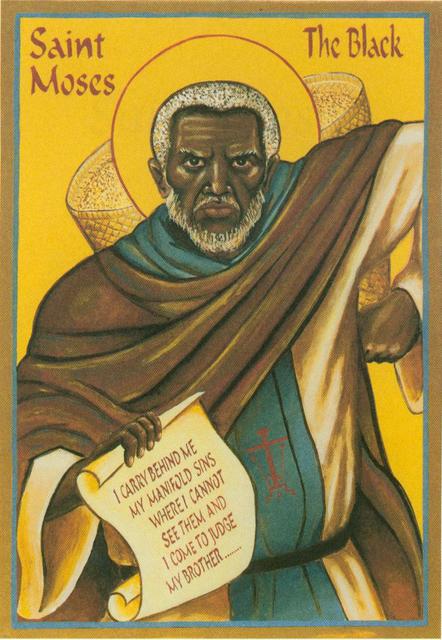Abba Moses and the Leaky Jug
Yesterday I sat in the second pew at St. Stephen’s church in Richmond, Virginia. There to speak later in the morning, I was worshiping at the 9 o’clock Eucharist.
My friend Gary Jones preached—masterfully—on that well-known parable from Luke. Two men go up to the temple to pray, a Pharisee and a tax collector. The Pharisee trumpets his righteousness. “God, I thank thee that I am not like other people: thieves, rogues, adulterers, or even like this tax collector. I fast twice a week; I give a tenth of all my income”.
But the poor tax collector, “standing far off,” will not so much as lift his eyes to heaven. Beating his breast he says, “God, be merciful to me, a sinner!” (Luke 18:9-14).
Gary told this story from the desert fathers.
A brother at Scetis committed a fault. A council was called to which Abba Moses was invited, but he refused to go to it. Then the priest sent someone to say to him, ‘Come, for everyone is waiting’ for you.’ So he got up and went. He took a leaking jug, filled it with water and carried it with him. The others came out to meet him, seeing the trail of water behind him, and said, ‘What is this, Father?’ The old man said to them, ‘My sins run out behind me, and I do not see them, and today I am coming to judge the errors of another.’ When they heard that they said no more to the brother but forgave him.
Abba Moses’ wisdom, Gary noted, was that he knew his sins and faults were mostly behind him. That is, he was willfully unaware. Somehow we see the splinter in our brother’s eye, but not the log in our own. We are quick to pounce on the sins of others, but our own failures? Those “trail behind us.”
When we put our sins before us, saying, “I am human and broken and full of my own faults and shortcomings”—two things happen, Gary promised as I listened. First, we can offer compassion instead of judgment to our brother or sister. And second, God is very near us. For God is always close to the humble poor.

- St Moses the Black
I tend to find when I am most judgemental it is because I am scared to death of being “outed” for the same shortcoming. Good Mon a.m. lesson, thank you.
Yes, we condemn in others what we see (or don’t want to see!) in ourselves.